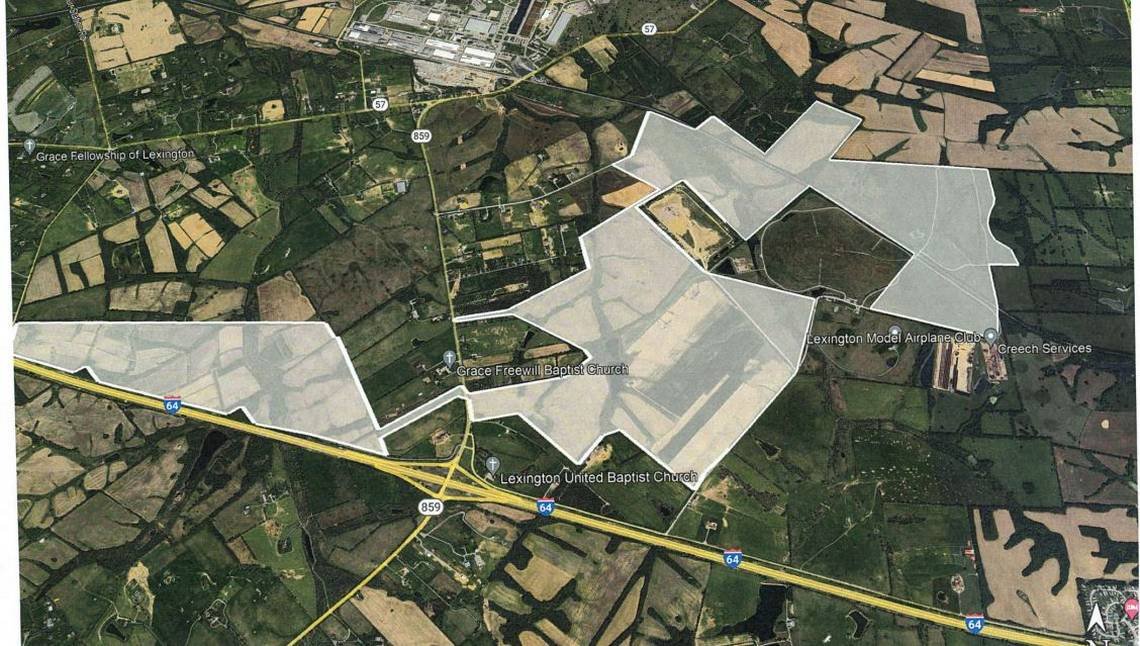Council Committee rejects rural solar panel regulations
The site of a proposed solar panel farm development by private company Silicon Ranch.
Last Tuesday, the General Government and Planning (GGP) Committee voted to approve a zoning ordinance text amendment (ZOTA) that establishes new regulations for solar panel installations in Lexington.
While District 5 Councilmember Liz Sheehan and District 10 Councilmember Dave Sevigny sponsored several proposed changes to the ZOTA — including allowing ground-mounted solar panels on rural farmland — those amendments were voted down. Instead, the Committee approved the original version of the ZOTA, which had been passed by the Planning Commission last September.
You can read more about the original ZOTA here.
Proposed Amendments
Sheehan and Sevigny’s amendments would have made a number of changes to the original ordinance, the most controversial of which would have permitted solar panel installations on farmland in rural Fayette County. You can read more about the amendments here.
Councilmember Sevigny made two main arguments in favor of allowing rural solar:
Equity for rural and urban residents: Sevigny argued that banning rural solar places more responsibility for meeting Lexington’s 2050 carbon neutrality goal on urban residents. He also added that banning ground-mounted solar in rural Fayette County is unfair to rural property owners, who wouldn’t be allowed to install the same panels that residents in other parts of the county can.
Influencing public utility projects: Although utility companies like East Kentucky Power are not subject to local zoning, they must get approval from the state’s Public Service Commission (PSC). Sevigny argued that if Lexington sets local rules for rural solar, the PSC might consider them when reviewing large-scale utility proposals, potentially encouraging more locally aligned projects.
Why the amendments were rejected
Most GGP Committee members voted against the amendments, citing several concerns:
Impact on farmland: Some members worried that large-scale solar developments could degrade Fayette County’s valuable farmland and soils. This is one of the main arguments made against rural solar panel developments in Lexington.
Unclear benefit to carbon neutrality: Others pointed out that there’s no way to guarantee that energy generated in rural Fayette County would primarily benefit Lexington, since electricity flows across a larger grid into multiple counties. Therefore, there’s no way to truly measure how/if rural solar would help Lexington meet the 2050 carbon neutrality goal.
2% land use cap: The proposed amendments included a cap limiting large-scale solar to no more than 2% of Fayette County’s rural land. Several Councilmembers argued that this was too much land to set aside, even though the cap included existing utility-scale projects, making it relatively restrictive for private developers. You can read more about the 2% cap here.
After the motion to approve the amended ZOTA failed, the Committee voted to adopt the original ZOTA passed by the Planning Commission with one small change: language was added to support Lexington’s application for a SolSmart designation—a national program that helps local governments become more solar-friendly. You can learn more about SolSmart here.
What’s next?
At Thursday’s Council meeting, Councilmember Sheehan announced that she and Sevigny plan to form a community work group to develop recommendations for how/if to regulate rural solar installations. District 12 Councilmember Hil Boone, who does not serve on the GGP Committee, voiced support for this idea during the committee meeting.
Members of the workgroup will be selected over the summer. The work group will likely begin meeting this Fall.

